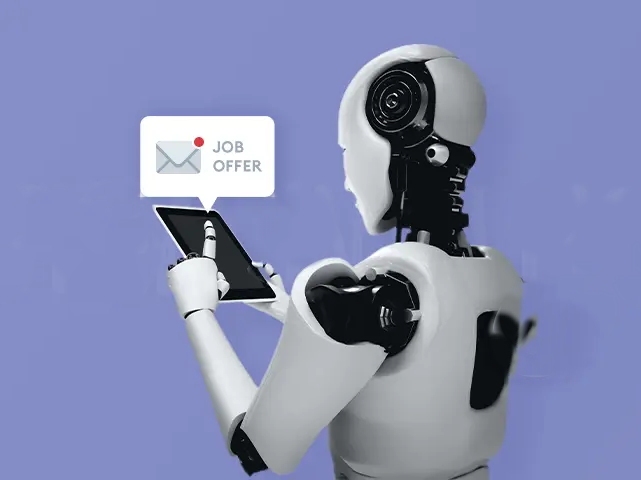Artifical Intelligence
Will AI take your job?
New research reveals the reality behind beliefs about jobs most likely to be replaced by AI, writes KAZIMIERZ RAJNEROWICZ in the Tidio blog.
Recently, Boston Dynamics released a video of dancing robots. Some people could not believe what they were seeing. It looked more like a Pixar animation than real footage.
This is simultaneously the cutest and most horrifying thing I’ve ever seen—some said.
Should we be afraid of increasingly more advanced AI and robots? Is AI going to take over the world? And more importantly, will it take your job? Or maybe even steal your boyfriend?
We decided to do our own research and surveyed over 1,200 people.
The three main topics we focused on were:
- What form should AI take to inspire our trust?
- What responsibilities are we willing to delegate to artificial intelligence?
- Which professions will be automated by machines and AI software?
You can also check out the results of our previous AI research study on computer vision and AI ethics
Now Fasten your seat belt and let us go over the key findings from our AI survey.
Artificial intelligence taking jobs
According to a widely-commented study on the future of employment, now known as the Oxford Study, about 47% of total US employment is at risk due to rapid computerisation.
“Will my job be replaced by a robot?”
This question is becoming more and more valid for most professions.
It is a racial problem too.
As Alana Semuels from Time notices, many people of color and low-wage workers lost their jobs due to the COVID-19 pandemic. She points out that they were primarily, “cashiers, food-service employees, and customer service representatives, which are among the 15 jobs most threatened by automation.” Now, they have problems with getting employed again.
Incidentally, the very same jobs top our list of the professions most likely to be taken over by AI.
Some 65% of our respondents suspect they could lose their jobs to AI in the next few years. And nearly 79% believe that rapid automation is an important issue that we should be particularly concerned about.
There certainly will be job disruption. Because what’s going to happen is robots will be able to do everything
We asked which professions are most likely to be automated. As a company that develops artificial intelligence chatbots for the ecommerce sector, we are also aware of our contribution to the changes in the job market. Customer service representatives are one of the top positions for professions that may soon become obsolete.
Cashiers, drivers, and translators are popular jobs that are already becoming gradually automated. Self-service checkouts, autonomous trucks, and real-time translation software are part of our reality. It shouldn’t be surprising that the majority of respondents—63% and 51% predict that cashiers and drivers are the jobs most likely to be replaced by technology.
Real-world AI solutions
Common use cases for AI include customer service chatbots. They use machine learning and natural language processing (NLP) to identify message intent. Chatbots can instantly analyse messages and provide quick answers to common questions. Companies use them to save money and improve the customer experience.
Police officers, doctors, lawyers have been voted professions that will survive the AI revolution. Professions typically associated with creativity appear to be even less vulnerable to the disruptive effects of AI technology on the job market. Artists and musicians were selected by almost 39 and 36% of respondents respectively as the jobs least likely to be taken over by artificial intelligence.
While artificial intelligence is playing an increasingly important role in law or healthcare, AI and robots tend to play intermediate roles between experts and clients or patients.
Grace, a robotic “nurse” created by Hanson Robotics, is still more of a receptionist for hospitals rather than a real nurse. And the majority of patients would feel uncomfortable around her anyways, which brings us to the next part of our study.
* For more insights on research into AI by Tidio, visit https://www.tidio.com/blog/ai-trends/


















